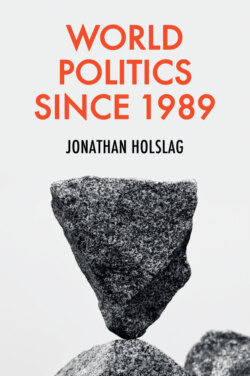Читать книгу World Politics since 1989 - Jonathan Holslag - Страница 27
CHAPTER 2 A DOUBTFUL VICTORY
Оглавление“IT IS IN OUR HANDS TO LEAVE THESE DARK MACHINES BEHIND, IN THE dark ages where they belong and to press forward to cap a historic movement toward a long era of peace.”1 This was how American President George H. W. Bush described the end of the Cold War. Technology was overwhelming tyranny, he reasoned, so that the age of information would be an age of liberation. British Prime Minister Margaret Thatcher echoed his optimism: “Our policies have brought unparalleled prosperity.”2 As McDonald’s opened its first franchise in Russia, Hollywood movies were tolerated by the theocracy in Tehran, and crowds kept descending on the Berlin Wall to hack pieces of concrete as a souvenir, liberalism appeared to become an irresistible guide to world politics.
This chapter captures the mood in the West at this decisive moment in the late 1980s and early 1990s. It measures its advantages, but also traces back worries, about the neglect of infrastructure, the decadence trap, with wealth decoupling from virtue, economic growth predating on the environment, the prospect of decline if the West did not respond to the ambitions of new competitors. The victory of the West, we will discover, was perceived as a doubtful victory. Some of these challenges, indeed, were present at an earlier stage. The 1970s formed a watershed between the 30 years of growth after World War II and a subsequent period of decay. Yet, still, it was at the end of the Cold War that the West had its hands free to address those challenges.
